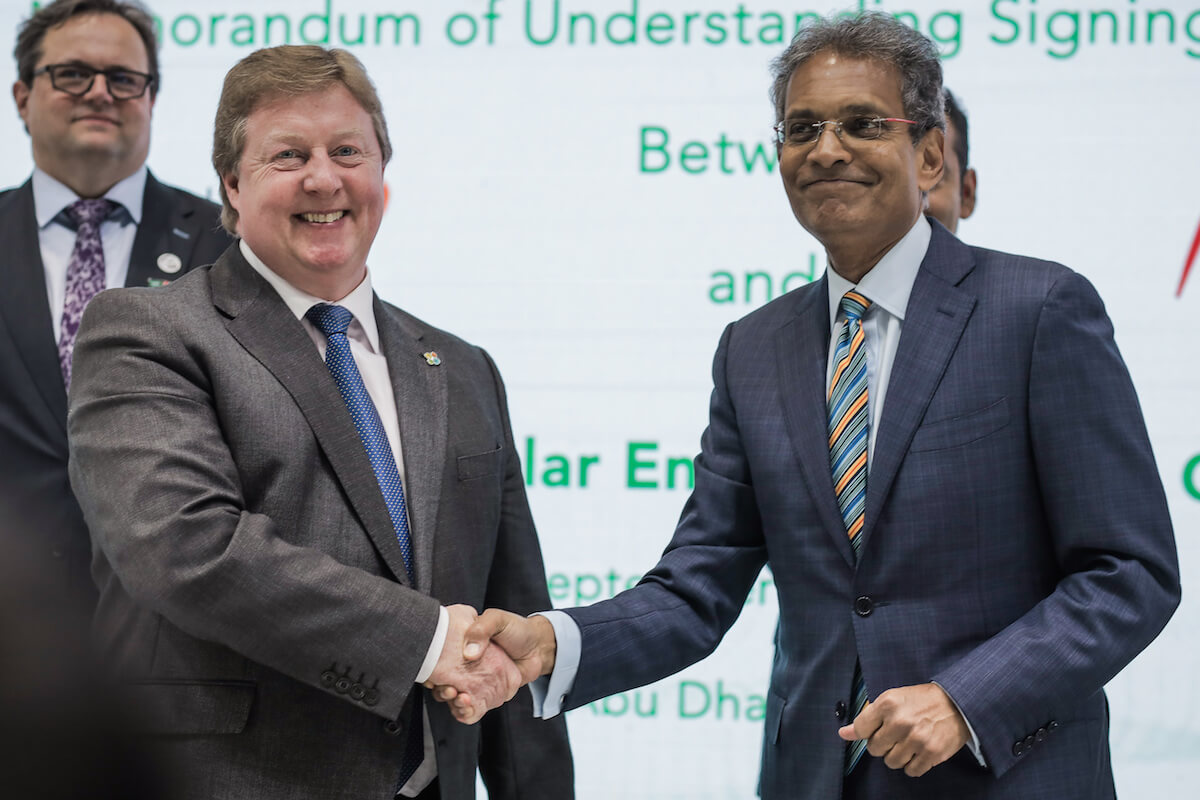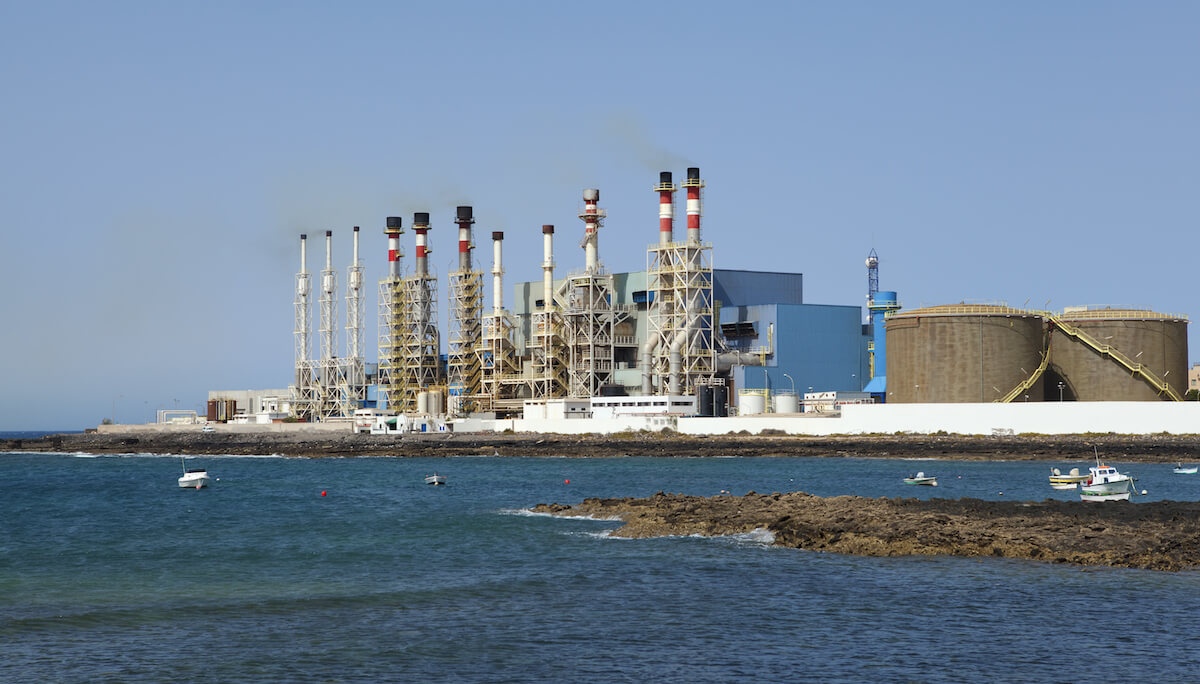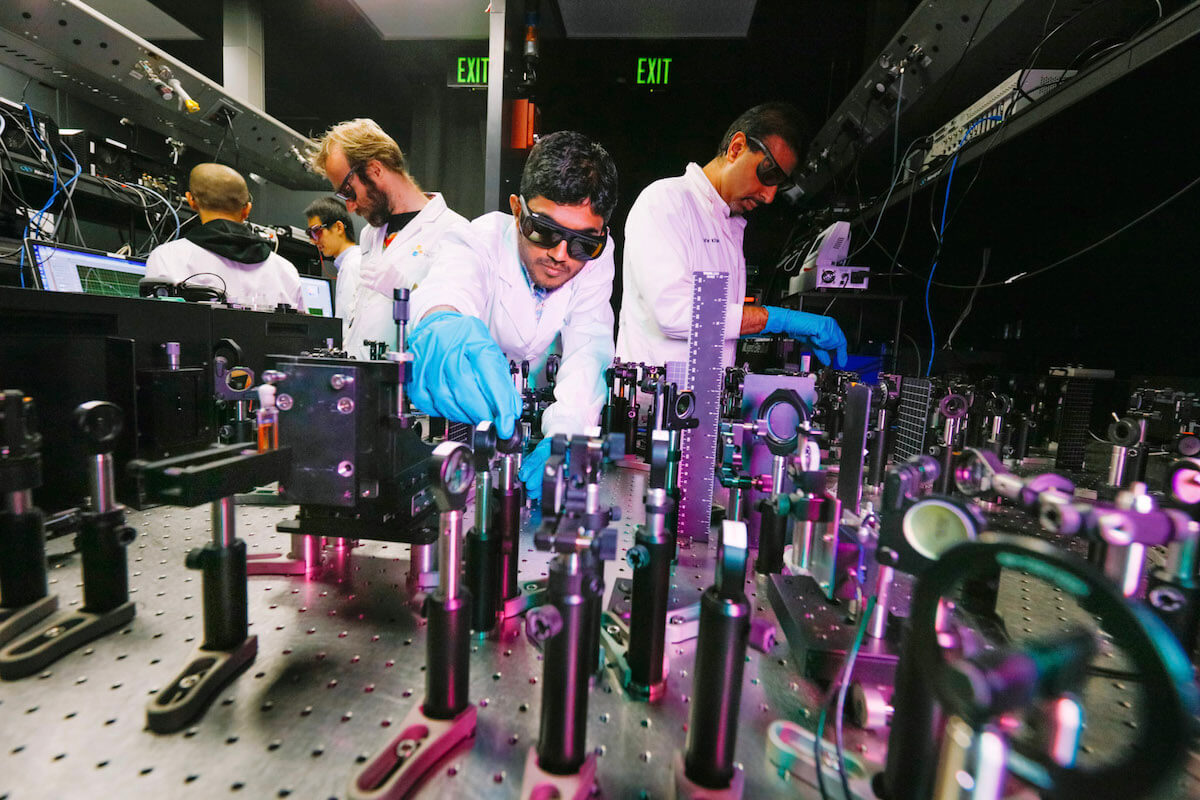KAUST launches ACWA Power Center of Excellence for Desalination and Solar Power

KAUST recently signed a memorandum of understanding with ACWA Power, inaugurating the KAUST – ACWA Power Center of Excellence for Desalination and Solar Power. Kevin Cullen (left), vice president of KAUST Innovation & Economic Development, and Paddy Padmanathan (right), president and CEO of ACWA Power, are pictured at the signing ceremony. File photo.
On September 9, KAUST signed a memorandum of understanding (MoU) with ACWA Power, one of the world's leading independent developers, investors and operators of power generation and desalinated water plants, inaugurating the KAUST – ACWA Power Center of Excellence for Desalination and Solar Power.
The signing, which took place at the World Energy Council Congress in Abu Dhabi, marks the beginning of a long-term research and innovation alliance between the two organizations that will help place Saudi Arabia at the forefront of international scientific advancements in water desalination and solar power technology.
Seawater desalination is an energy-intensive and expensive process. ACWA Power has already pioneered a paradigm shift in the industry thanks to the company's unique business model that aims to reliably deliver water and power at the lowest possible costs. Combining this strength with KAUST's expertise will enable the new Center of Excellence to pursue goal-oriented research aimed at achieving further cost efficiencies in producing desalinated water and generating solar power.

The process of desalinating seawater is energy-intensive and costly, requiring large industrial facilities. Pictured here is a seawater desalination plant in Arrecife, Lanzarote, Spain. Image courtesy of Shutterstock.
Commenting on the signing, Paddy Padmanathan, president and CEO of ACWA Power, said: "The robust collaboration between ACWA Power and KAUST will set grounds for both parties to innovate; explore; and open doors for novel breakthroughs in the water and energy sectors. With KAUST's academic knowledge and ACWA Power's market expertise, we can definitely stay ahead of the curve and catch up with the pace of change our industry faces.
"The MoU resembles a mutually beneficial relationship that will eventually feed into our target—delivering value for the Kingdom through the deployment of disruptive technologies that further reduce electricity and water tariffs. We are pleased to partake in this commendable partnership, as it grants us the resources to bring our ideas to life and explore new concepts that will strengthen our future projects and bids."
The KAUST – ACWA Power Center of Excellence will prioritize research in water quality monitoring and system performance modeling using several KAUST research centers, including the KAUST Water Desalination and Reuse Center (WDRC) and the KAUST Solar Center.

Researchers in the new KAUST – ACWA Power Center of Excellence will work with KAUST research centers such as the University's Solar Center (facilities pictured here). Photo by Anastasia Khrenova.
Thomas Altmann, vice president of Innovation and Technology at ACWA Power, added, "The global expertise and the excellent facilities brought together by KAUST will allow us to investigate emerging technologies faster and more deeply, providing us with a platform for testing water treatment processes in addition to a solar panel test facility ultimately aimed at developing best-in-industry plant optimization tools."
Biofouling, sensor development and evaluation and processes to reduce the carbon footprint are also within the partnership's scope of work. The center will also aim to invite other strategic industrial partners to join in its initiatives. These will contribute in diversification efforts of the Kingdom's economy with high-tech production capabilities.

